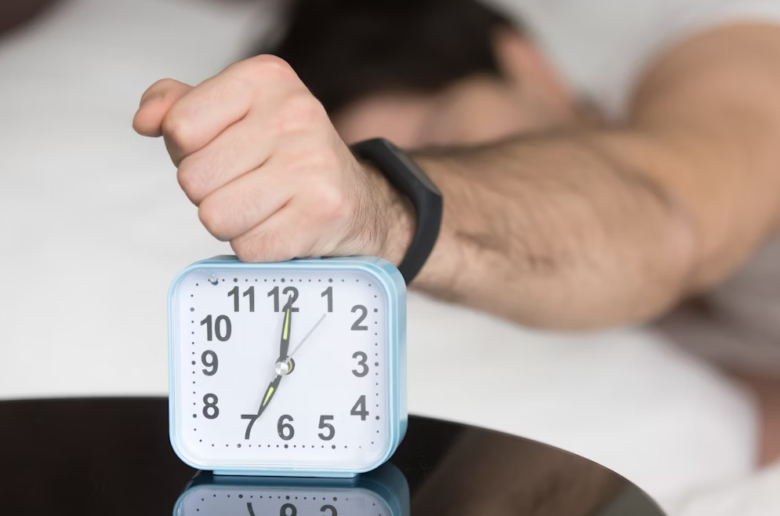What is delayed orgasm? In simple terms, it’s when reaching climax takes much longer than expected—or sometimes doesn’t happen at all. While it can be frustrating, it’s not always a sign that something is “broken.” Delayed orgasm can show up in men, women, and trans or non-binary people, and the reasons behind it can be physical, emotional, or even related to everyday habits.
The tricky part is that delayed orgasm isn’t just one thing—it can look different from person to person. For some, it happens only in certain situations, like with a partner but not alone. For others, it might start after a new medication, a stressful period, or a health change. Understanding those differences is key to figuring out what’s really going on.
Get ready to uncover some valuable insights:
- How delayed orgasm differs from conditions
- The main causes—ranging from hormones to medications
- What it means when orgasm is delayed in certain situations
- Steps you can take at home and treatments doctors may suggest
- When delayed orgasm is normal variation—and when it signals a deeper issue
By the end, you’ll have a clearer picture of what delayed orgasm really is, why it happens, and the practical steps you can take to address it. Let’s start unpacking the causes and solutions together.
Table of Contents
- Prevalence & Patterns: Age, Gender, Orientation & Behavior
- Primary Biological & Medical Causes to Rule Out
- Psychological, Relational & Lifestyle Factors That Deepen the Delay
- Navigating Diagnosis: What Happens (And What You Can Ask For)
- Treatment & Recovery Pathways: Evidence-Based Tools & Strategies
- Delayed Orgasm: Problems and Possible Solutions
- Myths, Misconceptions & FAQs
- Finding Your Own Way Forward
Prevalence & Patterns: Age, Gender, Orientation & Behavior

So how common is delayed orgasm, really? The short answer: more common than most people talk about. Studies suggest around 1 in 10 men and about 1 in 4 women experience some kind of orgasm delay at different points in life. It’s not always constant, and it doesn’t always look the same, but it shows up enough that if you’ve struggled with it, you’re far from alone.
Age makes a difference
As people get older, orgasm tends to take more time. Hormone levels shift, nerves aren’t as quick to respond, and health conditions like diabetes or high blood pressure can play a role. Many men notice delays starting in their 40s or 50s, while women often report more changes around menopause. That doesn’t mean pleasure disappears—it just means the path there may look a little different. [Translational Andrology and Urology]
Gender and orientation matter too
Research shows women report orgasm problems more often than men, but context matters. For example, women in same-sex relationships often report higher orgasm satisfaction than those in mixed-sex ones, likely because of communication and stimulation styles. For men, delayed orgasm often shows up in one specific setting—like fine when masturbating but difficult with a partner.
Behavior and habits play a role
How you usually experience pleasure shapes how your body responds. Someone who relies heavily on one type of stimulation during masturbation might struggle to climax with a partner. Stress, fatigue, alcohol, and even how often you have sex can all influence how quickly or slowly orgasm happens.
In short, delayed orgasm isn’t just about the body—it’s also about context: your age, your health, your habits, and even the dynamics of your relationship. Understanding these patterns is the first step toward figuring out whether it’s just a passing phase or something worth exploring more deeply. [PMC]
Primary Biological & Medical Causes to Rule Out

When orgasm takes longer than expected, the first step is often checking the body itself. Biological and medical factors can quietly play a big role, and many people don’t realize how much hormones, nerves, or even common prescriptions can influence sexual response.
Hormonal Imbalances (Testosterone, Thyroid, Prolactin, Menopause)
Hormones act like the body’s messaging system, and when the signals are off, sexual response can slow down.
- Testosterone: Low levels in men or women can affect desire and make orgasm harder to reach.
- Thyroid problems: Both overactive and underactive thyroid can throw sexual function out of balance.
- Prolactin: High levels of this hormone can dampen orgasm response.
- Menopause: Estrogen drops during menopause often change vaginal sensitivity, lubrication, and orgasm speed.
Doctors can check these with simple blood tests. Treatments might involve hormone therapy, adjusting medications, or managing underlying conditions. Because hormone changes happen slowly, they’re often overlooked, but getting them tested can be eye-opening.
Neurological & Physical Conditions (Nerves, Surgery, Illness)
Orgasms depend on nerves firing properly. If those signals are slowed or disrupted, orgasm can be delayed or absent.
- Nerve damage: Diabetes, multiple sclerosis, or spinal injuries can interfere with sexual sensation.
- Surgery effects: Pelvic, prostate, or back surgeries sometimes change nerve pathways.
- Chronic illness: Conditions like Parkinson’s disease or advanced cardiovascular problems may also contribute.
These aren’t always permanent barriers—sometimes physical therapy, medication adjustments, or specific techniques can help—but it’s important to know if nerves or physical health are involved.
Medication & Substance Use Effects
One of the most common (and least talked about) causes of delayed orgasm is medication.
- SSRIs (antidepressants): These are well-known for slowing orgasm, sometimes by minutes or even making climax impossible.
- Other meds: Blood pressure drugs, certain antipsychotics, and painkillers can have similar side effects.
- Alcohol & drugs: Heavy drinking or recreational drugs may dull sensitivity and delay orgasm.
The good news? These effects are often reversible. If a prescription is the culprit, your doctor may adjust the dose, switch medications, or suggest timing strategies. Don’t stop any medication on your own—but do bring it up with your healthcare provider if you notice a change in your sexual response.
Psychological, Relational & Lifestyle Factors That Deepen the Delay

Not every case of delayed orgasm comes from medical issues. The mind, relationships, and daily habits can have just as much impact—sometimes even more. Sexual response is a mix of body and brain, and when stress or unhelpful patterns sneak in, the whole process can slow down.
Anxiety, Performance Pressure & Mental Health
Anxiety is like having a noisy roommate in your head during sex. Instead of focusing on pleasure, your brain is running a checklist: Am I doing this right? Will I finish? Is my partner happy? That mental chatter pulls attention away from arousal and can delay or block orgasm.
Performance pressure—wanting to be “good” in bed—can have the same effect. The more someone tries to force it, the harder it becomes. People dealing with depression or other mental health struggles may also find their sexual response dulled.
Tools that help: slowing down, focusing on sensations instead of “the goal,” breathing exercises, mindfulness, or techniques from cognitive behavioral therapy (CBT). These approaches help quiet the inner critic so the body can take over.
Past Trauma, Shame, Sexual Education & Beliefs
Our history shapes how we experience sex. Someone who grew up with shame around sexuality, or who experienced trauma, may carry those feelings into adult relationships. Even if they want to relax, their body may hold back.
Negative beliefs—like “sex is dirty” or “I must orgasm every time”—create pressure instead of pleasure. Poor or absent sexual education often leaves people unsure of what’s normal, which adds another layer of doubt.
Reframing is powerful here: working with a therapist, practicing self-compassion, or simply learning accurate, shame-free information about sex can help release those old barriers.
Behavior & External Influences: Porn Use, Masturbation, Fatigue, Stress, Sleep
Habits outside the bedroom matter, too. For example:
- Porn use: For some, heavy or very specific porn use can make partner sex feel less stimulating by comparison.
- Masturbation style: If someone relies on one very intense method (like a certain grip or pressure), their body may struggle to adjust to different kinds of stimulation.
- Stress & fatigue: Being exhausted or mentally overloaded makes it harder to focus on arousal.
- Sleep: Poor sleep lowers hormone levels and energy, which slows everything down.
None of these mean pleasure is impossible—they’re just reminders that everyday choices add up. Adjusting habits, lowering stress, or experimenting with new ways of connecting can gradually change the pattern.
Navigating Diagnosis: What Happens (And What You Can Ask For)

Figuring out why orgasm takes longer isn’t always straightforward, but the process doesn’t have to feel overwhelming. A good diagnosis is about gathering clues—your medical history, your daily habits, your emotional health—and putting them together to see the full picture. Knowing what to expect (and what to ask) can make the first doctor visit much easier.
What a Doctor or Specialist May Do
- Medical history: Questions about your overall health, medications, surgeries, and whether other conditions (like diabetes or high blood pressure) are in play.
- Sexual history: How often the delay happens, whether it’s with partners, solo, or both. You might also be asked about orientation, relationship status, and satisfaction levels.
- Physical exam: A basic check-up to rule out neurological or hormonal signs—this can include blood pressure, reflexes, and genital health.
- Lab tests: Blood work for hormones like testosterone, thyroid levels, or prolactin if there are signs of imbalance.
- Psychological screening: Short questionnaires or a referral to a therapist if stress, trauma, or mental health concerns might be involved.
Red Flags That Deserve Extra Attention
If you notice any of these, bring them up right away:
- Orgasm suddenly becomes difficult after being fine for years
- Numbness or loss of sensation in the genitals
- Pain during sex or after orgasm
- Big changes in mood, libido, or energy alongside the orgasm delay
- Medication changes that line up with when the problem began
Questions You Can Bring to Your Appointment
Having a short list ready keeps the visit focused:
- Could any of my current medications be slowing my orgasm?
- Should I get my hormones checked?
- Are there lifestyle changes that might help?
- Would you recommend therapy, pelvic floor work, or seeing a sex therapist?
- What’s the safest way to adjust medication if that’s the cause?
Quick Checklist: Preparing for Your Visit
- Keep a brief log of when the delay happens (solo vs with partner, stress levels, etc.)
- List all medications, vitamins, and supplements you take
- Note any recent health changes (surgery, illness, menopause, etc.)
- Write down the main questions you want answered
A clear diagnosis is the first real step toward treatment. By walking in prepared, you’ll get better answers and a plan that feels tailored to you—not just a one-size-fits-all guess.
Treatment & Recovery Pathways: Evidence-Based Tools & Strategies

The good news is that delayed orgasm isn’t always permanent, and there are plenty of ways to improve it. Depending on the cause, treatment might involve medical care, therapy, or simple adjustments you can try at home. The best approach usually combines more than one strategy.
Medical / Drug / Hormone-Based Interventions
When delayed orgasm is linked to hormones or medication side effects, doctors may suggest medical options:
- Hormone therapy: Low testosterone or thyroid problems can sometimes be treated with medication, restoring balance and improving sexual response.
- Medication adjustments: If antidepressants (SSRIs) or other prescriptions are slowing orgasm, your provider may reduce the dose, switch you to a different drug, or add another medication to offset the side effect.
- Other drugs: In some cases, doctors prescribe medications that improve nerve signaling or blood flow, though these are usually a second-line option.
Evidence for these treatments is mixed—what works for one person may not work for another. And every option comes with pros and cons. That’s why it’s important not to stop or change prescriptions on your own but to talk with a healthcare professional about safe adjustments.
Therapeutic Approaches: Sex Therapy, CBT, Sensate Focus, Mindfulness
Because the brain plays such a big role in sexual response, therapy can make a real difference.
- Sex therapy: A safe space to explore concerns, ease anxiety, and build confidence.
- Cognitive Behavioral Therapy (CBT): Helps quiet the negative thought loops (“what if I can’t finish?”) that block arousal.
- Sensate focus exercises: Guided touch practices that shift focus away from “the goal” and back onto pleasure and connection.
- Mindfulness: Simple breathing and body-awareness techniques reduce stress and help you stay present during intimacy.
Studies show these approaches can improve satisfaction even when orgasm doesn’t happen every time. They also strengthen communication between partners, which often reduces pressure and frustration.
Self-Help Techniques: Exercises, Communication, Sensory Exploration
Small changes at home can sometimes make the biggest difference:
- Pelvic floor exercises: Kegel-style training builds muscle control and heightens sensation.
- Experiment with techniques: Try slowing down, changing positions, or adding different kinds of touch to see what sparks more response.
- Adjust masturbation habits: If you always use one intense method, practice gentler or varied styles so your body adapts more easily during partnered sex.
- Talk with your partner: Open conversations lower pressure and make it easier to focus on connection instead of performance.
- Add variety: Sex toys, lube, temperature play, or focusing on erogenous zones beyond the genitals can all boost stimulation.
The key is patience—delayed orgasm often improves gradually as the body and mind relearn to relax and respond. Keeping track of what helps (and what doesn’t) makes it easier to share clear info with your partner or doctor.
Delayed Orgasm: Problems and Possible Solutions
| Problem / Contributing Factor | Possible Solutions |
|---|---|
| Low hormones (testosterone, thyroid, prolactin, estrogen changes in menopause) | Blood tests to confirm; hormone replacement therapy or medication adjustments under doctor supervision. |
| Nerve damage or physical conditions (diabetes, spinal injury, pelvic/prostate surgery, MS, Parkinson’s) | Medical evaluation; physical therapy; specialist treatment; adaptive techniques to enhance sensation. |
| Medication side effects (SSRIs, blood pressure meds, antipsychotics, painkillers) | Doctor may adjust dose, switch medication, or add a counteracting treatment. Never stop on your own. |
| Anxiety, performance pressure, depression, or other mental health factors | Sex therapy, CBT, mindfulness, stress management techniques, open partner communication. |
| Past trauma, shame, or negative sexual beliefs | Trauma-informed therapy, psychoeducation, building new associations with safe and positive intimacy. |
| Relationship strain or poor communication | Couples counseling, sensate focus exercises, open discussions about needs and desires. |
| Masturbation habits (strong grip, specific toy or porn use) | Experiment with gentler or different stimulation; gradually retrain response to partner sex. |
| Fatigue, stress, poor sleep, alcohol, or substance use | Lifestyle changes: better sleep hygiene, stress reduction, moderating alcohol/drug use, prioritizing rest and health. |
| Normal variation (sometimes it just takes longer) | Focus on pleasure over performance; try different positions or pacing; release pressure around “finishing every time.” |
Myths, Misconceptions & FAQs

When it comes to delayed orgasm, a lot of myths get passed around. Let’s clear them up with some straight answers and highlight what’s actually normal.
Is it true orgasms should happen within a few minutes?
No. Orgasm timing varies a lot. Some people climax quickly, while others may need 20 minutes or longer. Both can be normal, and speed alone doesn’t define sexual health.
Do only women experience delayed orgasm?
No. Men, women, and trans or non-binary people can all deal with delayed orgasm. In men it’s sometimes called delayed ejaculation, but the core issue is the same—orgasm takes longer than expected.
If I can orgasm alone but not with a partner, does that mean something is wrong with my relationship?
Not necessarily. This difference is often about stimulation style, comfort, or performance pressure. Many people have no trouble reaching orgasm solo but find it harder with a partner, and that doesn’t automatically mean the relationship is failing.
Does porn or sex toy use cause permanent delayed orgasm?
No. Regular use of specific habits—like a certain grip during masturbation or certain kinds of porn—can make it harder to orgasm in other settings. But with variety and practice, patterns can change. It’s not permanent.
Should everyone orgasm every time they have sex?
No. Orgasms aren’t guaranteed every time, and that’s okay. Sexual satisfaction comes from connection, pleasure, and intimacy—not just climax.
Does delayed orgasm always mean a medical problem?
Not always. Sometimes it’s linked to hormones, medication, or nerve issues. But stress, fatigue, relationship dynamics, or even sleep quality can play a part too.
Is talking to a doctor about orgasm embarrassing or pointless?
It can feel awkward, but it’s worth it. Doctors deal with sexual health all the time and can help rule out causes, order tests, or suggest treatments that actually work.
So what counts as healthy variability?
Taking longer on some days, or not climaxing every time, is part of normal sexual variation. It becomes something to address when delays cause distress, frustration, or strain in your relationships.
Finding Your Own Way Forward
Delayed orgasm can be frustrating, but it doesn’t mean something is “broken.” With time, open communication, lifestyle changes, or professional support, many people see real improvement.
For some, adding new types of stimulation also helps. Exploring vibrators or other toys can make arousal more flexible and responsive. If you’re interested, Lovense offers app-connected vibrators and toys designed to give you more control, variety, and ways to reconnect with pleasure.



